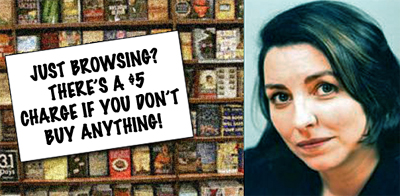indieBRAG is excited to be a witnesses to/and participant in the dramatic upsurge of self-publishing. Once considered a second-class citizen (or worse) in the world of publishing, self-publishing is now a force to be reckoned with; it has awakened the heretofore sleeping giants of traditional publishing.
Clear evidence of this was Penguins’ acquisition of Author Solutions last year. The executives at Penguin and other traditional publishers may be arrogant but they are not stupid. They seek to create a self-sustaining and highly efficient business model in which an indie author pays them to have their book published; does all the work promoting their book; and, if/when the book somehow manages to gain some meaningful measure of recognition and success, the big boys swoop in to offer the author a contract. They have, in effect, created a give and take relationship with indie authors whereby you give and they take!
Only time will tell if signing a contract with a traditional publisher is something that a successful indie author will or should want. One advantage of such a deal is that a publisher can gain distribution in retail book stores; something that indie authors have great difficulty achieving. However, as eBooks gain a larger and larger segment of book sales, the need to do so will become less important.
Moreover, as I noted in my previous blog, brick and mortar book stores are increasingly becoming simply a place where potential book buyers go to browse (and have a coffee), after which they go home and order the book online, where the prices are generally cheaper.

Victoria Barnsley, CEO of Harper Collins seems to think brick and mortar bookshops may have to start charging patrons to browse titles in their shops due to the threat from online shopping.
BBC Radio 4’s The Bottom Line program on Saturday (9th February)
Another potential benefit of gaining a book deal with a traditional publisher is an upfront advance. Obviously, this is very tempting since it allows an indie author to give up their “day job” and write full time. Of course, this has greater appeal to a struggling indie author rather than one who has already achieved financial success.
For these and perhaps several other reasons, the prospect of a book deal with one of the “big guys” may still be appealing to some, but the bottom line is that an indie author should not/and cannot sit back and wait for their phone to ring. Success starts with writing a really good book but it doesn’t end there. If you want opportunity to notice, then go knock on its door.
Leave a Reply